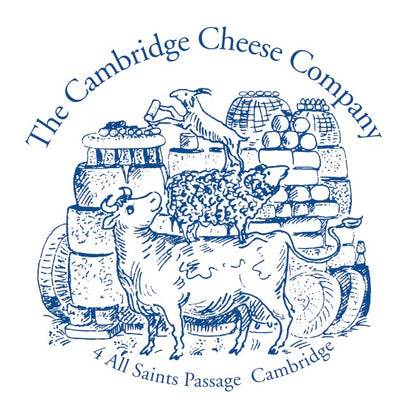Hafod is made by Holden Farm Dairy on Bwlchwernen Fawr, a 300 acre farm, just 10 miles from the Ceredigion Coast in West Wales. Patrick Holden, the owner, has been there for 50 years and makes Hafod cheese with his wife, from their herd of 80 Ayrshire cattle. These particular cows have just the right balance of butter fat and protein for cheese making, are well suited to the Welsh climate and spend their days enjoying the lush, herb rich pastures of the farm. The farm has been certified organic since 1973, making it the oldest organic dairy in all of Wales.
Hafod is Welsh for summer place or pasture. The recipe for the cheese came from Patrick’s close friend Dougal, who learned the art of cheese making in the Swiss Alps but decided to move to West Wales in the early 80’s where he began training other cheesemongers, including Patrick’s son and daughter in law who decided to get involved and developed a Welsh made Cheddar that would become Hafod.
Holden Farm Dairy cares for half of their land as permanent pasture, which involves practicing holistic grazing which enhances soil health and mimics nature. This allows the land to recover and regenerate quickly as well as increase organic matter growth, alongside ensuring biodiversity.
Holden Farm Dairy also practices traditional mixed livestock farming so use a rotation system on their fields. They currently grow cereals for feed for two years, then have one year of arable silage, under-sown with a herbal ley for the next 5 years of fertility building. Herbal ley seed mixes have tens of benefits including building soil fertility, storing carbon, being resilient to extreme weather, improving biodiversity and being rich in nutrients, among others.
Organically reared cows are protected so are guaranteed a huge amount of space, access to pasture and as much time outside as possible. Organic standards also ban the routine use of antibiotics and wormers and instead ensure that cows have ample space to roam, which naturally reduces stress and disease and removes the need to use them in the first place. Organic fed cows cannot be fed GM animal feed so their carbon footprint is much lower than barn kept cows as food doesn’t need to be grown for them elsewhere and so there are very few, if any, food miles involved in their feeding. Farms run under these organic standards also see a vast increase in biodiversity on site.


